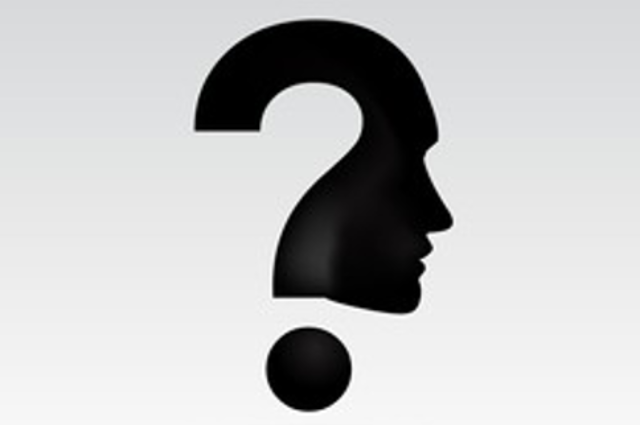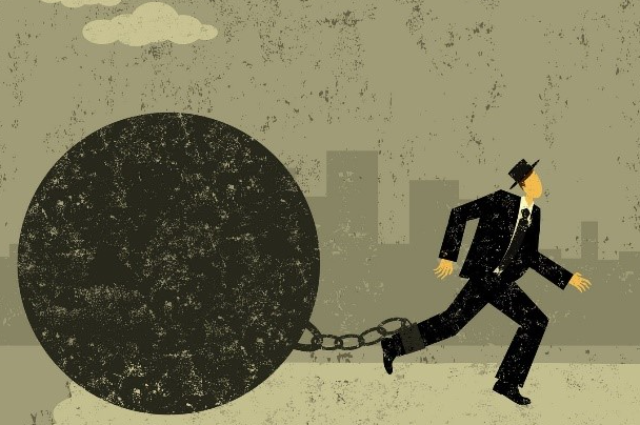
In this article, I am talking about a crisis which most of us would definitely encounter in our lifetime--at least once, for sure! It is famously known by many names. Some call it ‘existential crisis’, some tag it as ‘mid-life crisis. All true. In essence, these are all but different variations of IDENTITY CRISIS.
The common symptoms of this disease include spending too much time in deep introspection and constantly revisiting the past, asking questions to self like What am I doing (or have done) with my life? Am I living the best life? And the worst of all, WHO AM I?
You might ask what the problem is with such questions. After all, they are so deep and mind-blowing. So full of philosophy, they are a gateway to nirvana. A heavenly life. Sorry to burst this bubble so soon, but nothing of this sort truly exists.
The problem is that there is no definite answer to such specious questions. We presume that by finding answers to such questions we would unlock the secrets to complete mental, physical, and spiritual well-being. We believe that we will unearth the magical trick for everlasting happiness and undisturbed peace. We become convinced that we are broken and need to be repaired. This is the worst mind-trick an identity crisis plays with us. An identity crisis is like the collapse of a building. It hammers the very foundation on which we have laid the bricks of our life.
Identity is the tag (quite literally) which we hang around our neck and walk around with. We feel it is important to describe us. Identity is how we visualize ourselves and contrast with the rest of the world. Be it the cheesy Instagram Bio or the resume/CV for a job interview, we are constantly trying to summarize our existence into words. But putting up tags in not just highly dangerous, it is also highly stupid.
By defining ourselves we restrict our limitless potential. When we distinctively associate ourselves with a few certain things, we inadvertently let go of the other innumerable things which might be true for us as well. We do not realize that by identification, we stereotype ourselves into a fixed template. That leaves no room for exploration. If I constantly live my life tagging myself as a writer, I might never discover the artist or singer within (Though the probability of the same is very less, but still focus on the point). This limitation is perhaps the worst consequence of identification. But it is not the only one.
Problems of Identification:
1. Identity takes away the freedom of failure
Mark Manson in his bestselling book “The subtle art of not giving a F*ck” describes it (quite ironically) as Manson’s Law of Identity. It states
“The more something threatens your identity, the more you tend to avoid it”.
I doubt this requires any further explanation. Let me ask you about the startup you have an idea for but are still researching upon or for that adventure trip your wanderlust heart so badly desires but you find no time for it out of your busy schedule. Failure in these pursuits, even the prospect of it, threatens your identity of being an 'entrepreneur' or an 'adventurer'. And hence, you don't even give it a try.

Quite amazingly, we don't even think twice before attempting something unfamiliar when such an opportunity presents itself. We almost instinctively do it out of sheer excitement. We do not resort to finding excuses as we usually do for protecting our erroneously conjured up self-image or wrongly interpreted self-worth. This is why we agree, without bothering much, to join our friend for a marathon or lend a helping hand to cook Sunday night mega-feast. And out of the blue, we find out that 'accidental' runner or chef that had been hidden inside for long.
2. Identity blocks acceptance
Most self-help authors point out that acceptance is the key to change. It is the guiding light for a peaceful life. But they stop one step short of explaining what it is exactly that makes a situation so unacceptable. The answer is simple. Humans will discard any situation if it threatens or doesn’t conform to their identity.
This is why that ‘picture perfect’ couple refuses to acknowledge that the posts on social media are a façade and their marriage is falling apart. This is why that business tycoon refuses to acknowledge that his much-lauded way of doing things is now obsolete and his empire is crashing down. And this is exactly why I couldn’t accept that my much celebrated and enviable life is nothing but an illusion. (More on the same in the third chapter)
Accepting the truth which, more often than not, runs contrary to our vision is excruciating. It is uncomfortable. If forces us to change our perspective and beliefs that we held onto for years. It is quite disruptive. And it is also very necessary. We need to accept life for what it is and stop fretting about what it "should" be like.
Similarly, we need to take a long, hard look in the mirror and digest the reflection even if it isn't as pretty as our filtered lens in mind had projected to be.
Identity crisis breaks us down, but it is also necessary so that we can rebuild ourselves (not the identity, but our true self) up from scratch.
3. Identity makes you suffer
We are so much in love with our identity that we tend to ignore the pain it brings with itself. Identity is like that lover we don’t want to lose at any cost. So, we intentionally remain blind to its vices in the fear that it doesn’t leave us alone.
Just try to think of that conversation you always avoid or divert or simply ignore. Why are certain topics so sensitive, so touchy? This is because we have strong feelings associated with them. In a way, we identify ourselves deeply in those events. We avoid certain confrontations to keep our identity safe. We misguidedly keep running away to avoid suffering, and ultimately just end up prolonging it even further.
Because you identify yourself as a loyal wife, you keep putting up with your husband’s tantrums even when it disturbs you mentally. Because you identify yourself as a weak person, you tend to stay quiet even when someone takes advantage of you.
Behaviour is governed not just by our genes or emotions. Identity has a very big part to play in it as well. We behave a certain way to strengthen (or preserve) the image we create for ourselves.
This is exactly why we need to reflect on how we see ourselves and introspect if that is true. But even more importantly, we need to let go of our vision and ALL the ideas that we have for ourselves. When we let go of our identity, we also shrug off the chains of limitations and lies that we had tied ourselves into.
4. Identity is a lie
Identity does us no good and yet we hold onto it dearly because we feel it is the ultimate truth. We perceive the words that others speak about us and those which we use for ourselves as truth and nothing but complete truth. But it rarely happens that our vision matches with how we are perceived by others. This is the identity’s hypocrisy. It narrows our scope down and forces us to visualize ourselves in an absolute rigid definition when it has no definite form itself.

Identity is subjective. Thus, there can be no question about the truth anyway. Identity, much like reality, is just a figment of our imagination. There is no singular identity. Just like there is no one reality.
In fact, it is seldom our opinion which forms the basis of our identity. As quoted by Cooley,
“I am not what I think I am, I am not what you think I am, I am what I think you think I am”
Let me point out another hypocrisy of identity. We acquire things in a pursuit to define ourselves. So, we collect trophies, medals, certificates, cars, mobile phones because we believe this is how we would be identified. We own things to give ourselves recognition, but in the end, it is the things we do not own that end up defining ourselves. That is exactly what happens in our messed-up brain.
So, while others may see us as the guy with an awesome car, we keep thinking about the big mansion we do not own. And that guy who we identity for his sprawling bungalow, describes himself as the unfortunate widower who has no children. See, how deceptive identity can be. Therefore, it is better to let go of it in its entirety.
